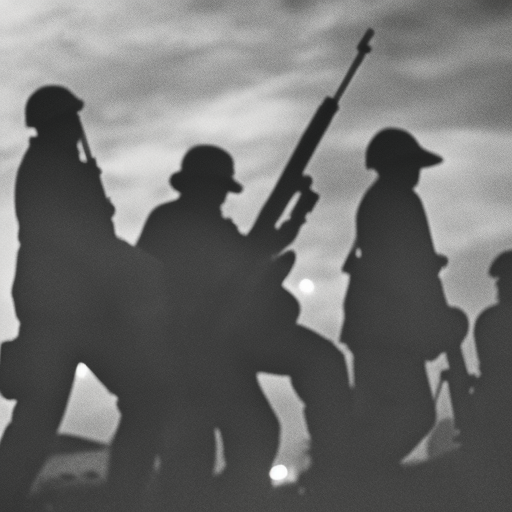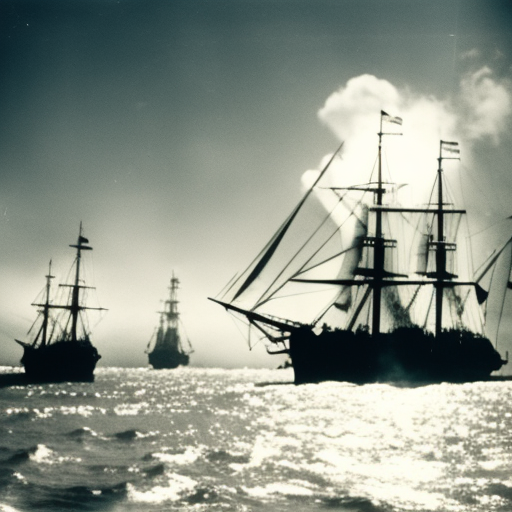Mau Mau Uprising: A Struggle for Kenyan Independence
The Mau Mau Uprising, also known as the Mau Mau Rebellion, was a significant armed conflict that took place in Kenya between 1952 and 1960. It was a revolt against British colonial rule and a fight for Kenyan independence. The conflict was primarily led by the Kikuyu ethnic group, who formed the Mau Mau movement.
Background:
Kenya was a British colony known as British East Africa Protectorate until 1920 when it became a British Crown Colony. The colonial administration implemented policies that favored white settlers, leading to the dispossession of land from the indigenous population, particularly the Kikuyu. The Kikuyu people, who were the largest ethnic group in Kenya, faced severe economic and social hardships.
Causes:
The Mau Mau Uprising was fueled by several factors. The primary cause was the land issue, as the Kikuyu people were forcibly removed from their ancestral lands to make way for white settlers. This led to widespread poverty and frustration among the Kikuyu, who felt marginalized and oppressed.
Another key factor was the denial of political rights to the indigenous population. The British colonial government maintained a policy of indirect rule, which excluded Africans from participating in the political process. This lack of representation and voice in decision-making further fueled discontent and resentment.
Course of the Uprising:
The Mau Mau Uprising began in 1952 when the Mau Mau movement launched a series of attacks against British colonial authorities and white settlers. The movement aimed to drive the British out of Kenya and establish an independent African state.
The British responded with a heavy-handed approach, declaring a state of emergency and launching a military campaign to suppress the rebellion. They employed brutal tactics, including mass arrests, torture, and forced labor. The British also implemented a policy of “villagization,” forcibly relocating Kikuyu people into heavily guarded villages to separate them from the Mau Mau fighters.
The Mau Mau fighters, known as freedom fighters by some and terrorists by others, employed guerrilla warfare tactics. They attacked British military and police installations, as well as African collaborators who were seen as traitors to the cause. The Mau Mau fighters also targeted white settlers and their farms.
The British forces, supported by African loyalists, gradually gained the upper hand. They employed a combination of military force, intelligence gathering, and psychological warfare to weaken the Mau Mau movement. The British also implemented a strategy of winning hearts and minds by providing social and economic reforms to the Kikuyu people.
End of the Uprising:
By 1956, the Mau Mau Uprising had been largely suppressed. The British forces had successfully dismantled the Mau Mau infrastructure and arrested many of its leaders. The remaining fighters were forced into hiding or fled to neighboring countries.
The Mau Mau Uprising had a profound impact on Kenya’s struggle for independence. It exposed the injustices of colonial rule and galvanized the nationalist movement. The uprising also led to significant political reforms, including the establishment of political parties and the eventual granting of independence to Kenya in 1963.
Legacy:
The Mau Mau Uprising remains a contentious and sensitive topic in Kenya’s history. It is seen by many as a symbol of resistance against colonial oppression and a catalyst for Kenya’s independence. However, it also resulted in significant violence and atrocities committed by both sides.
The Mau Mau Uprising highlighted the need for land reform and social justice in post-colonial Kenya. It also sparked a broader movement for decolonization across Africa, inspiring other nationalist movements in the struggle against colonial rule.
In recent years, there have been efforts to address the historical injustices and reconcile the wounds caused by the Mau Mau Uprising. The Kenyan government has acknowledged the suffering endured by the Mau Mau fighters and has made efforts to compensate the victims and their families.
Overall, the Mau Mau Uprising played a pivotal role in Kenya’s journey towards independence. It remains a significant chapter in the country’s history, reminding future generations of the sacrifices made in the pursuit of freedom and self-determination.












